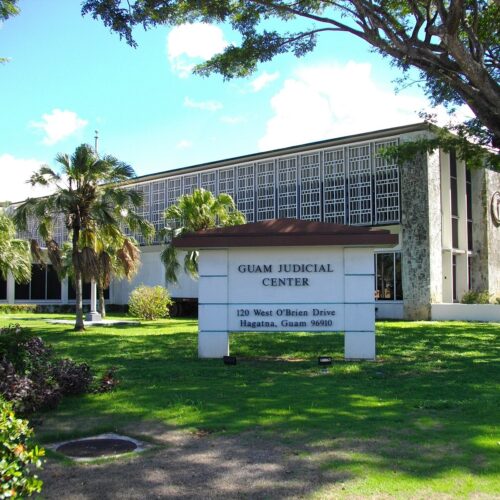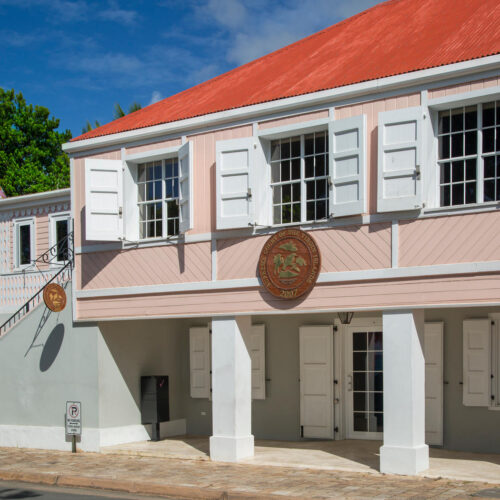New Guam report finds judicial influence over indigent defense

Pleading the Sixth: Guam’s indigent defense system is not independent from the judiciary, impacting the provision of the right to effective assistance of counsel on the island. A new 6AC evaluation explains those impacts while recommending that Guam establish an independent commission with full authority to oversee right to counsel services.
Guam’s justice system is relatively young, and its indigent defense system is even younger. As such, the Judiciary of Guam assumed the responsibility of overseeing the right to counsel since its inception. Members of the judiciary expressed that judicial responsibility of indigent defense services was necessary in the early stages to ensure its proper development and growth. Nonetheless, Guam must change its indigent defense structure because 6AC’s report, The Right to Counsel on Guam: Evaluation of Trial-Level Indigent Defense Representation in Adult Criminal Cases reflects an indigent defense system that experiences undue judicial interference.
Indigent defense services on Guam
There are only two ways in which the Guam government provides attorneys to represent indigent people on the island’s courts. All appointed attorneys in adult criminal cases are either government employees of the Public Defender Service Corporation (PDSC corporation) or private attorneys who are appointed by the court on a case-by-case basis. While the legislature has mandated these two methods of providing counsel, the legislature left it almost entirely up to the judicial branch to decide how to carry this out.
The primary division of the PDSC corporation must provide representation in all appointed cases unless it has a conflict of interest. The Alternate Public Defender was created within the PDSC corporation in 2004 and functions as a secondary conflict public defender office. All further conflict cases are represented by private attorneys.
Judicial influence over indigent defense
The findings from the evaluation reflect, at root, an indigent defense system that is not independent from the judiciary. The Guam supreme court chief justice is the chair of the PDSC board that oversees the PDSC corporation, and appoints two of the other four members. The superior court presiding judge, who regularly presides over PDSC corporation’s appointed case, is the vice-chair of the PDSC board. Furthermore, court rules require the supreme court to create a standing committee to oversee the private attorney panel. That standing committee has five voting members: the PDSC corporation executive director and four other chief justice-appointed members. Finally, when both divisions of the PDSC corporation have a conflict of interest, and there is no panel attorney available to be appointed, the court rules allow the court to appoint any active member of the Guam Bar Association.
This judicial influence results in many issues for indigent defendants. For example, an indigent defendant who is booked and released at the time of arrest receives an appointed attorney at arraignment, which typically occurs approximately 364 days after the person was arrested on a misdemeanor and just shy of three years after the person was arrested on a felony. Indigent defendants are then denied conflict-free counsel at the critical stages of arraignment and during the pre-trial period between arraignment and the beginning of trial, and in some instances during plea negotiations and at the entry of a guilty plea and also at sentencing.
Moreover, the court does not consider the qualifications or experience of the non-panel attorneys in making appointments. As a result, the court has at times appointed attorneys who have no experience or training in criminal defense to represent indigent defendants facing felony and/or misdemeanor prosecution in the trial court. For example:
- a felony case was assigned to a lawyer who had never been to court;
- a homicide case was assigned to an estate lawyer;
- an environmental lawyer was appointed to a human trafficking case;
- an attorney who works full-time as a teacher was assigned a felony case;
- at times, non-panel attorneys who are not living or practicing law on Guam are appointed.
Judiciary members who oversee the indigent defense system are not trying to undermine the constitutional right to counsel. Rather, when attorneys are appointed through a system overseen by judges, they inevitably bring into their calculations what they think they need to do to stay in favor with the judiciary, rather than solely advocating for the stated interests of their client as is their ethical duty. In short, PDSC corporation and panel attorneys must worry about keeping the judiciary members that oversee them happy.
The path forward
The question for Guam’s policymakers is how best to provide effective counsel to indigent people, as required by the Sixth Amendment, under Guam’s unique circumstances. There is no uniform “cookie-cutter” delivery model that jurisdictions must apply. The Right to Counsel on Guam suggests one blueprint for restructuring Guam’s indigent defense system to achieve independence.
Guam should vest the authority to oversee all indigent legal services in an independent right to counsel commission. The commission should be empowered to promulgate and enforce standards applicable to all indigent defense system attorneys. The new commission should create an office of indigent legal services to administer the system, which should not provide direct representation itself. The office of indigent legal services’ executive director should hire lawyers to run the day-to-day operations of whatever divisions or separate entities are ultimately created. This includes hiring a manager of the panel attorney system that must be out from under the judiciary.

